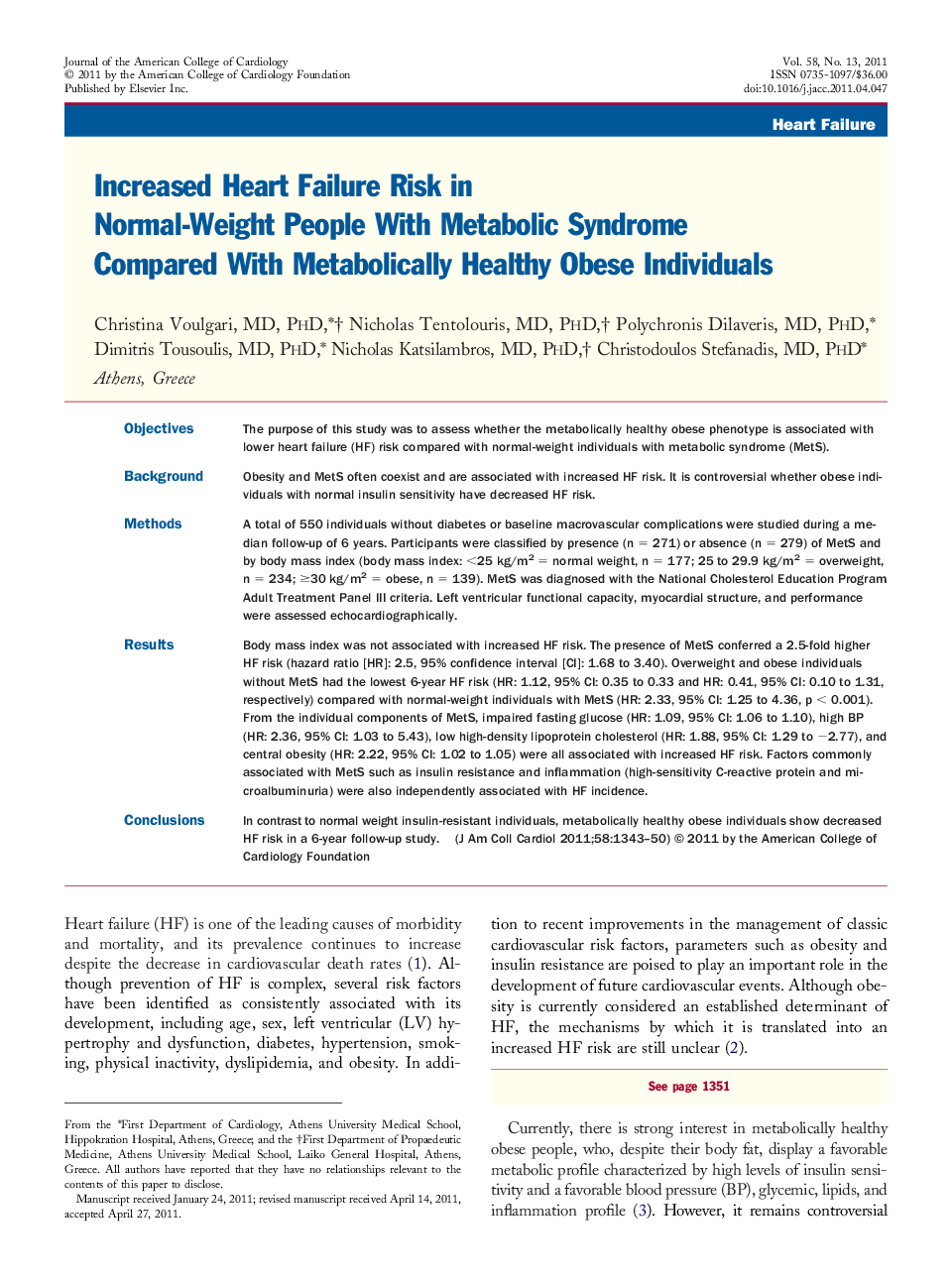| Article ID | Journal | Published Year | Pages | File Type |
|---|---|---|---|---|
| 2948549 | Journal of the American College of Cardiology | 2011 | 8 Pages |
ObjectivesThe purpose of this study was to assess whether the metabolically healthy obese phenotype is associated with lower heart failure (HF) risk compared with normal-weight individuals with metabolic syndrome (MetS).BackgroundObesity and MetS often coexist and are associated with increased HF risk. It is controversial whether obese individuals with normal insulin sensitivity have decreased HF risk.MethodsA total of 550 individuals without diabetes or baseline macrovascular complications were studied during a median follow-up of 6 years. Participants were classified by presence (n = 271) or absence (n = 279) of MetS and by body mass index (body mass index: <25 kg/m2 = normal weight, n = 177; 25 to 29.9 kg/m2 = overweight, n = 234; ≥30 kg/m2 = obese, n = 139). MetS was diagnosed with the National Cholesterol Education Program Adult Treatment Panel III criteria. Left ventricular functional capacity, myocardial structure, and performance were assessed echocardiographically.ResultsBody mass index was not associated with increased HF risk. The presence of MetS conferred a 2.5-fold higher HF risk (hazard ratio [HR]: 2.5, 95% confidence interval [CI]: 1.68 to 3.40). Overweight and obese individuals without MetS had the lowest 6-year HF risk (HR: 1.12, 95% CI: 0.35 to 0.33 and HR: 0.41, 95% CI: 0.10 to 1.31, respectively) compared with normal-weight individuals with MetS (HR: 2.33, 95% CI: 1.25 to 4.36, p < 0.001). From the individual components of MetS, impaired fasting glucose (HR: 1.09, 95% CI: 1.06 to 1.10), high BP (HR: 2.36, 95% CI: 1.03 to 5.43), low high-density lipoprotein cholesterol (HR: 1.88, 95% CI: 1.29 to −2.77), and central obesity (HR: 2.22, 95% CI: 1.02 to 1.05) were all associated with increased HF risk. Factors commonly associated with MetS such as insulin resistance and inflammation (high-sensitivity C-reactive protein and microalbuminuria) were also independently associated with HF incidence.ConclusionsIn contrast to normal weight insulin-resistant individuals, metabolically healthy obese individuals show decreased HF risk in a 6-year follow-up study.
